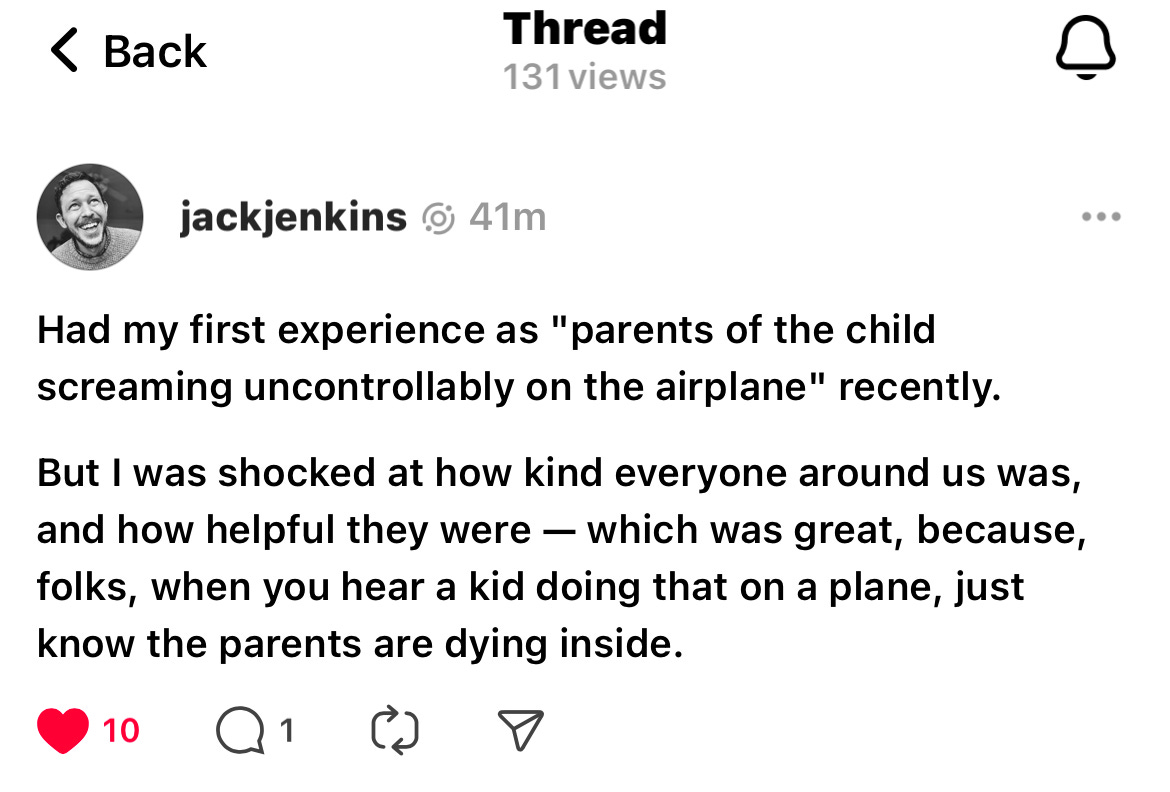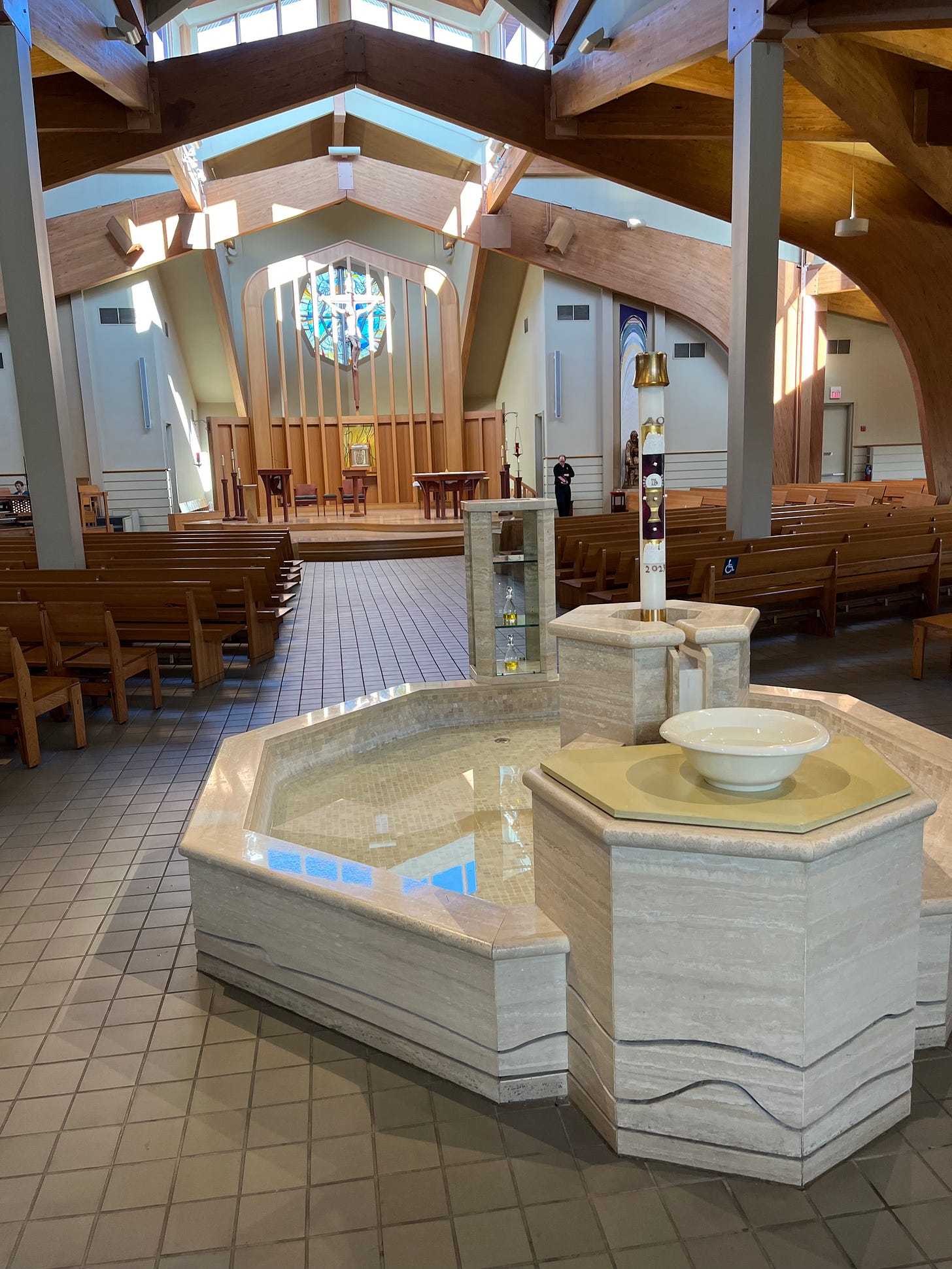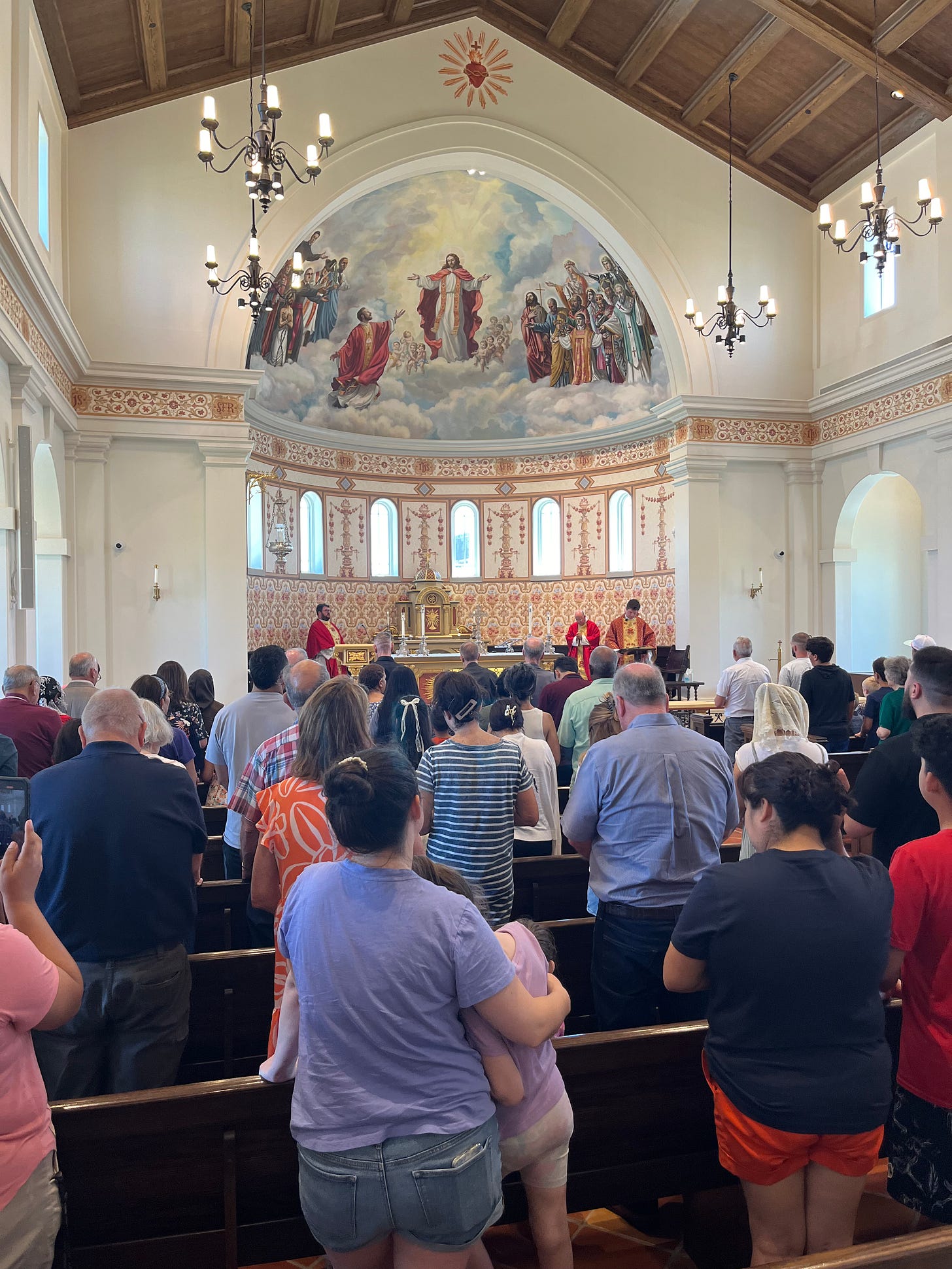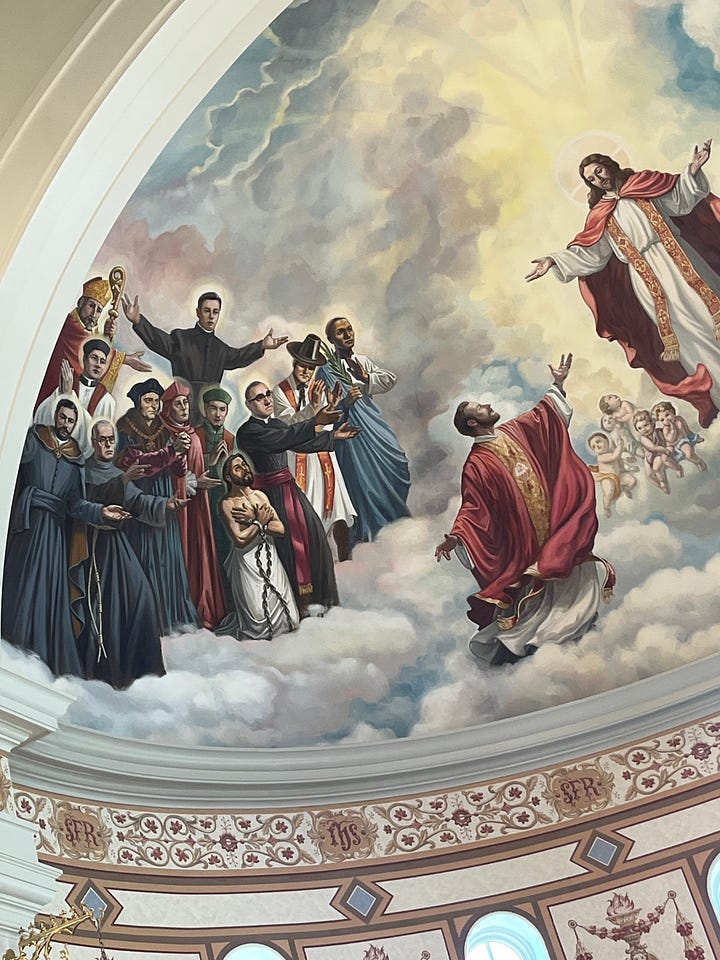by Dan Masterton
Last week, my wife and I celebrated our ninth wedding anniversary. We, of course, wanted to step out on our own to celebrate and enjoy an evening together.
Now, we are blessed that our parents are able and willing to babysit often. I stay at home with the kids six out of seven days most weeks, but during my one day on-site for my part-time job, my dad and Katherine’s mom take turns covering the kids for the day.
Additionally, a grandparent sometimes will come take a girl to tumbling or dance class, take the kids out to a lunch, or make a playdate so we can run errands, take an appointment, or even maybe sneak a quick date. These chunks of aid are eminently helpful. However, my dad is 45 minutes away, and her mom lives out of state and comes up to her second home here part-time only.
So, one of my summer bucket list items was to find a non-grandparent babysitter locally, so that we’d have another avenue for covering the kids and getting out on our own once in a while. I turned to our excellent park district, whose employees are always so well trained and great with our kids. I looked particularly to our great swim school, where the young people are awesome with the kids, are trained lifeguards (so certified in CPR), and already have my kids for lessons. We worked it out with one of our favorite teachers to come over and do a little one-hour trial run and then hired her on for our anniversary night.
Our seven-year-old, Lucy, was excited for a new play-friend, and she understands how it’s just for a few hours and helps mom and dad a lot by letting us step out. Our clingier four-year-old, Cecilia, thought the babysitter would come but that mom and dad would stay home, too — alright, bonus play-friends! We talked her down a bit to straighten her out, and when the babysitter arrived, she had claimed her new friend for a game of checkers before our babysitter could even take off her sandals.
We made sure everyone was set and comfortable and scooted off to our cooking class and dinner. Honestly, we barely thought twice about the kids’ happiness or safety while we were away. We didn’t feel the need to check in, and we only got one text, after big girl bedtime: “Little update: everything is great!”
We came home at the appointed time with all three girls asleep and a smiling babysitter ready to head home. It was a piece of cake all around. The next day, they shared a bit about the fun and games they had while we were gone, and it sounded like a smooth, happy night.
Then, a few days after the fact, while we were driving to my seven-year-old’s ice skating lesson, Lucy blurted a story, as she often does: “Daddy, when we said our nighttime prayer, Miss *** said that when she got oil on her forehead she picked Saint Lucy. And her sister picked Saint Cecilia.”
Wait, did we accidentally hire a Christian, maybe even Catholic, baby sitter?! Honestly, I wasn’t thinking at all of what religion these young people might be; I just wanted a kind, warm, trained babysitter. But, hey, I’ll take it! Cool. Also, you gotta love a seven-year-old’s summary of Confirmation (or maybe her parroting of a teen’s simplified explanation of the Sacrament for a little one).
But wait, wait — did the kids make sure they said their bedtime prayer even when mom and dad weren’t home?! Whoa, alright! Way to go, kids! It wasn’t hard to imagine my scrupulous, self-aware, rule-following Lucy telling her babysitter that we say a bedtime prayer. It also wasn’t hard to imagine my bulldozer, brutish, hyperactively itinerant Cecilia telling the babysitter that she gets to say the bedtime prayer — Ceci often cuts Katherine and me off as we try to begin with the Sign of the Cross, and then Ceci proclaims the prayer with excessive volume and speed.
So, our bedtime prayer is simple — a basic formula my late mom made up for my brothers and me that I repurposed for our family: God bless mom, dad, Lucy, Ceci, and Brigid, all our grandmas and grandpas, aunts and uncles, cousins, and all our friends. Thank you, God. Amen.
My tack-on is that I’ve long loved intercessory prayer, strengthened especially by the way the Notre Dame Folk Choir (which Katherine and I met as members of) would end every rehearsal with communal prayer and the invocation of Sts. Cecilia and Brigid(!). So at the end of our prayer, we have all our kids invoke all their patrons: St. Lucy, St. Cecilia, and St. Brigid, pray for us!
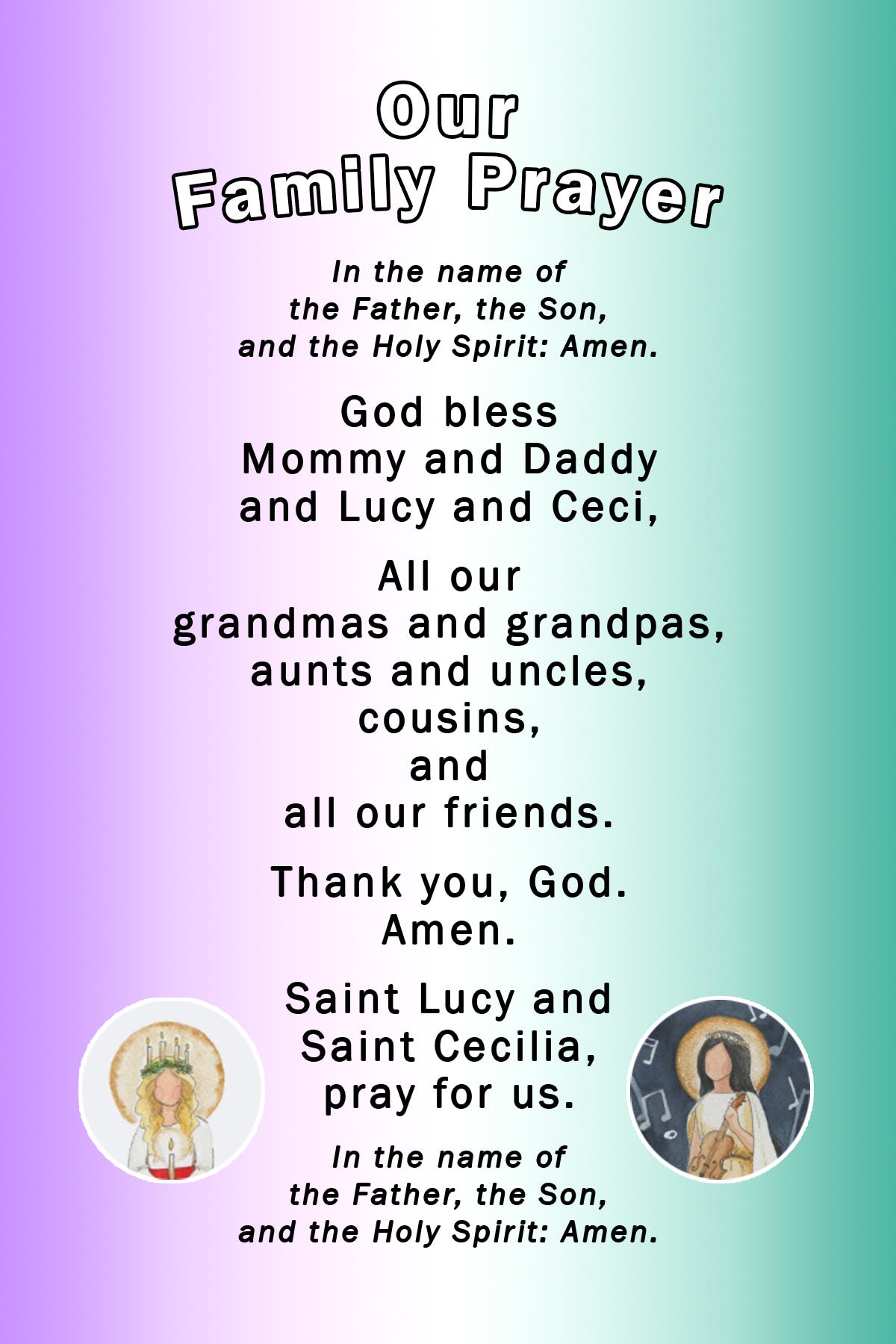
I’d say we are fairly low-key and casual about our household faith. When I was a kid, my parents took us to Mass every week, sent us to Catholic school, and tried to set a steady, understated example of faith. That approach made a big impact on me, and it informs how I try to raise my kids in the faith. Our main habits are Sunday Mass, little chats in the car, prayer before meals, and bedtime prayer. And even without a reminder from me, even without a note on the babysitter’s agenda, the kids said their bedtime prayers on their own. Huzzah!
Sometimes, as Cecilia clumsily and proudly invokes the great women after whom we named these girls, I imagine these three saints in heaven jogging to meet each other. Perhaps there’s some usual meeting spot where they enjoy hearing earthly pleas for intercession. Maybe Lucy and Brigid are already waiting there and Cecilia is rushing to catch up. But they meet each other, embrace, and gently receive these loving pleas from the little mouths of my kiddos and our family. And it consoles me to invoke such women over and over again over the lives of my kiddos. And especially to imagine their mixed, sarcastic, good-humored reactions to our humble pleading.
And even more, I don’t think praying is like making wishes on a genie lamp; I don’t necessarily think prayer achieves things that prayerlessness fails to accomplish (I don’t think prayer saves houses from tornadoes while others are wrecked, and I don’t think prayer cures some cancers while others are stricken). I believe prayer is a self-opening to help you become more self-aware of God’s abiding presence, God’s ever-flowing love, and of God’s moving grace and Spirit which catalyze love as it moves in us and between us. I think prayers of intercession are the turning of our hearts toward models of faith — people who went before us who are so connected with God that their dwelling with God forever brings us to these realities of God with a different richness and directness.
I don’t think our night away and the kids’ and babysitter’s night in would’ve been disastrous without prayer. But I do think they were joyful and peaceful with prayer. I believe that such a small, simple, pure moment is part of an arc of grace. It can be tempting to think of grace and miracles as being wild, extraordinary, untold, epic events; I think more often of grace as the lattice grid that holds up the newly built and paved road, the wooden framework on to which drywall and siding are added in home construction.
And I don’t think of grace as something that is the response that only comes after some later stimulus. I think grace was somehow moving as we looked for and paired with a babysitter, as she first came over and played with my girls, and as we all enjoyed this night in two different places. I think this little moment of prayer is just as much as a root of grace as it is a destination. And I believe the sense and awareness of this trajectory of grace, of this movement and God and God’s love, is the power of prayer.
